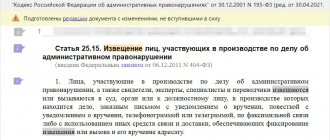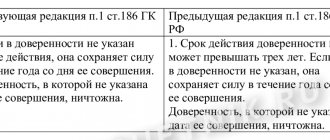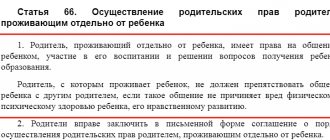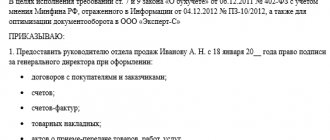When do you need a power of attorney from an organization to court?
Any legal dispute requires representation of the interests of its participants, whether individuals or legal entities.
Most organizations engage in contractual work every day, pay taxes, interact with clients, pay insurance premiums, and hire and fire workers. For each of these issues, a dispute may arise that will have to be resolved in court. Managers rarely participate in court hearings. They basically delegate authority to representatives.
In all cases of representation of a company’s interests in court by a lawyer, a power of attorney will be required, for example, if:
- you do not agree with the actions of your counterparties;
- you challenge the actions of government authorities, for example the tax authorities, regarding the assessment of taxes;
- a dispute has arisen with an employee, for example due to dismissal, non-payment of wages, or personnel error.
- clients went to court because they believe that the law has been violated and the organization is at fault;
- a dispute arose with the bailiffs;
- A car has been registered for the organization, and a fine has been received that you do not agree with.
There are a lot of situations when participation in court is required, and a professional lawyer will better protect the interests of the company.
General power of attorney to represent the interests of a legal entity
If you need to draw up a general power of attorney to represent the interests of a legal entity, then such a power of attorney will be a general power of attorney.
Art. 185 of the Civil Code of the Russian Federation provides that a power of attorney from a legal entity must be signed by a person who acts in accordance with the constituent documents without a power of attorney. In an LLC, this is usually the general director. If the constituent documents mention several persons who are jointly vested with powers, then all of them must sign a general power of attorney (clause 5.4 of the letter of the Federal Tax Service dated July 22, 2016 N 2668/03-16-3 “On Methodological Recommendations for Certifying Powers of Attorney”).
A general power of attorney conveys the broadest possible powers of action on behalf of the organization:
- carrying out all transactions and banking operations;
- representation in all government bodies and courts;
- signing of all legal entity documents;
- any other actions necessary for the activities of the organization.
However, not all so simple. The transfer of the entire scope of powers (as implied by a general power of attorney), the execution of which, in accordance with the law and constituent documents, falls within the competence of the sole (collegial) executive body of a legal entity, on the basis of a general power of attorney to another person is not permitted by law.
Otherwise, the functions of the sole (collegial) executive body will be performed by a person who is not elected (appointed) in accordance with the requirements of the current legislation and information about whom is not available in the Unified State Register of Legal Entities, that is, in practice, another executive body will be formed.
The transfer of powers of the sole executive body can be carried out only for a certain time in the event of a temporary impossibility for this person to perform his duties (vacation, illness, business trip). In this case, an order is issued for the temporary performance of duties and a power of attorney is issued, which outlines the terms of reference of the person performing the duties.
Form and validity period of the power of attorney
ConsultantPlus has ready-made solutions, including those on who can represent the interests of a legal entity in arbitration proceedings in court and how to formalize powers. If you don't yet have access to K+, get it for free on a temporary basis. You can also get the current K+ price list.
A power of attorney to the court is drawn up in writing. Notarization is not required, even if the document is issued with the right of substitution.
Reliability is often used in large companies. For example, when a power of attorney is issued to the head of the legal department, and he, in turn, delegates interests to employees specializing in specialized matters - road accidents, taxes, etc.
The duration of the power of attorney can be any, but you need to proceed from the approximate duration of the trial. If the representative will participate in several cases, it is advisable to issue a power of attorney for a longer period.
Important! Even organizations that delegate powers of representation in court to in-house lawyers, as a rule, issue powers of attorney for no more than a year. This is due to the fact that an employee may quit, go on maternity leave, get sick, and the power of attorney will have to be revoked.
If the power of attorney has expired, you can always issue the same one with a new date.
The validity period is calculated from the date of issue of the document, which is stated in it. If it is not registered, the power of attorney will be void. She simply won't be accepted in court.
Sample of a judicial power of attorney from a legal entity
A sample of a judicial power of attorney can be downloaded in the “Documents and Forms” section at the beginning of the article.
We recommend that you include the following information in the document:
- Name. Simply write: Power of attorney.
- Place and date of issue. For example: Moscow, April twentieth, one thousand nine hundred and twenty-three. The date is required, don't forget about it.
- Information about the organization - name, legal form, TIN, OGRN, registration address, director. For example: Romashka LLC, INN ______, OGRN, _______, registered at the address: Moscow, st. Sevastopolskaya, 2, represented by General Director Ivan Ivanovich Ivanov, acting on the basis of the charter, authorizes...
- Representative information. If this is an individual, then full name, registration address, date of birth, passport details. If this is an organization, then TIN, OGRN, name.
- Information about what powers are being transferred. For example: Represent the organization in arbitration courts, courts of general jurisdiction, before magistrates, and perform all procedural actions provided for by law.
- Duration of the power of attorney. For example: A power of attorney was issued for a period of one year.
- Transfer data. For example: A power of attorney was issued without the right to delegate to other persons.
- Signature of the head of the organization.
- Organizational stamp, if available.
Nuances of issuing a power of attorney for the court from a legal entity
Most of the nuances are related to representation in specific cases. The fact is that procedural legislation obliges to prescribe specific powers for certain actions.
For example, if the power of attorney does not indicate the right of the representative to file complaints against decisions in cases of administrative violations, the complaint will most likely be returned to the representative. The powers can be found in specific procedural articles, for example Part 2 of Art. 56 CAS RF, art. 54 Code of Civil Procedure of the Russian Federation, Part 2, Art. 62 Arbitration Procedure Code of the Russian Federation.
Here are examples of permissions you may need to specify:
- Sign administrative claims and objections to an administrative claim, submit them to the court, sign and submit to magistrates applications for the issuance of court orders.
- Sign and submit counter administrative claims.
- Conclude agreements on reconciliation of the parties.
- Refuse in whole or in part from the administrative claim.
- Change the subject and basis of the claim.
- Appeal court decisions.
- Receive awarded funds.
- Present writs of execution for execution.
Another nuance is printing. If the charter states that there is a seal, but the power of attorney does not have one, then the representative may not be allowed to participate in the case.
If the representative is on the staff of the organization, indicate this in the power of attorney and write down the position (clause 12 of the resolution of the Plenum of the Supreme Arbitration Court of the Russian Federation dated December 9, 2002 No. 11).
When you transfer a power of attorney with the right to reassign, write down the possibility of further reassignment, if you want it to exist.
The procedure for registering the powers of a lawyer in various types of legal proceedings
I. General provisions
1.1. According to Art. 25 Federal Law No. 63-FZ of May 31, 2002 “On advocacy and the legal profession in the Russian Federation”, advocacy is carried out on the basis of an agreement between the lawyer and the client. The agreement is a civil law contract concluded in simple written form between the principal and the lawyer (lawyers) for the provision of legal assistance to the principal himself or a person appointed by him.
Providing legal assistance on the basis of an agreement with the client, the lawyer, by virtue of clause 2 of Art. 2 of the Federal Law of May 31, 2002 N 63-FZ “On advocacy and the legal profession in the Russian Federation” can represent the interests of the principal in constitutional, civil and administrative proceedings; participate as a representative or defender of the principal in criminal proceedings and proceedings in cases of administrative offenses, as well as in the proceedings in the arbitration court, international commercial arbitration (court) and other conflict resolution bodies.
1.2. An analysis of the current legal regulation allows us to distinguish such types of representation as contractual, legal, public (statutory), and court-appointed representation.
Contractual representation arises at the will of the represented person. It is based on a contract of agency, a contract for the provision of legal services or an employment contract. A type of contractual representation is the representation of legal entities by the executive body of a given person (manager) or a representative, including a full-time employee of the organization.
Legal representation when, by force of law, a party is unable to conduct his or her case in court. The list of legal representatives is given in Art. 52 of the Code of Civil Procedure of the Russian Federation and is not exhaustive - parents, adoptive parents, guardians, trustees and other persons to whom this right is granted by the Federal Law. The basis for the emergence of legal representation is:
- kinship,
- adoption,
- administrative act on the appointment of a guardian or trustee, etc.
Legal representatives carry out on behalf of the represented all procedural actions, the right to perform which belongs to the represented themselves with certain restrictions provided for by law (for example, according to Article 37 of the Civil Code of the Russian Federation, the guardian has no right, without the permission of the guardianship and trusteeship authorities, to carry out transactions to alienate the property of the ward).
The legal representative may entrust the conduct of the case in court to another person chosen by him as a judicial representative. In this case, it is possible for two representatives to participate in the process: legal and contractual.
Patronage combines elements of legal and contractual representation.
Public (statutory) representation is the conduct of cases in courts by authorized public associations on behalf and in the interests of their members, as well as other persons. Public representation cannot arise without the will of the person represented. A public organization that has the right to represent the interests of its members is a trade union.
Representation by appointment of the court. The court appoints a lawyer as a representative in cases provided for by federal law.
Representation of the principal's interests by a lawyer is contractual, and in cases provided for by federal law, representation by appointment of the court.
When representing the interests of the principal and representing the interests of a person appointed by the court, the lawyer is obliged to properly confirm his authority.
1.3. Based on the current legal regulation, the powers of a representative can be confirmed:
- a warrant for the execution of an order issued by the relevant legal entity;
- a power of attorney issued and executed in accordance with the law;
- oral or written request of the principal, stated at the court hearing. An oral petition must be entered into the minutes of the court session, and the signature of the applicant must be placed under such a record if special powers are indicated in the petition.
- the powers of legal representatives are confirmed by documents certifying their status and powers.
1.4. In accordance with Art. 6 of the Federal Law of May 31, 2002 N 63-FZ “On advocacy and the legal profession in the Russian Federation” the powers of a lawyer participating as a representative of a client in constitutional, civil and administrative proceedings, as well as as a representative or defender of a client in criminal proceedings and proceedings in cases of administrative offenses are regulated by the relevant procedural legislation of the Russian Federation.
1.5. In cases provided for by federal law, a lawyer must have a warrant for the execution of an assignment issued by the relevant legal entity.
The form of the warrant is approved by the federal justice agency.
In other cases, the lawyer represents the client on the basis of a power of attorney.
At the same time, no one has the right to demand that the lawyer and his client present an agreement on the provision of legal assistance for the lawyer to enter into the case (Clause 2 of Article 6 of the Federal Law of May 31, 2002 N 63-FZ).
Thus, based on the provisions of paragraph 2 of Art. 6 of the Federal Law of May 31, 2002 N 63-FZ “On advocacy and the legal profession in the Russian Federation”, in confirmation of his powers, a lawyer is obliged, in cases provided for by federal law, to provide a warrant, in other cases a power of attorney.
1.6. Availability in clause 2 of Art. 6 of the Federal Law of May 31, 2002 N 63-FZ “On Advocacy and the Legal Profession in the Russian Federation”, the reference norm often leads to disagreements between the lawyer and the court about what documents should certify the lawyer’s powers: a warrant or a power of attorney, or a warrant and a power of attorney.
An analysis of the current procedural legislation allows us to come to the conclusion that certification of a lawyer’s powers depends on the type of legal proceedings, and in some cases, on the scope of the lawyer’s powers.
1.7. A power of attorney issued by a principal to a lawyer must be issued not to an individual, but to the lawyer. At the same time, the power of attorney must contain the same information as in the order, that is, without fail - the number of the lawyer’s certificate, the registration number in the register of lawyers of the Republic of Dagestan, affiliation with the legal profession, the date of issue and the name of the body that issued the lawyer’s certificate, and it is also necessary to indicate the data of the lawyer as an individual, namely: date of birth, passport details, registration address.
The Council of the Bar Association of the Republic of Dagestan recommends using a lawyer’s warrant issued by the relevant legal entity as a document confirming the procedural powers of a lawyer.
In cases where the current legislation of the Russian Federation stipulates that the powers of a lawyer can only be certified by a power of attorney or the lawyer needs additional powers to carry out an order to provide legal assistance, the lawyer must formalize and confirm his powers with two documents - a properly executed warrant and a power of attorney.
The presence of a power of attorney issued by the principal to the lawyer does not exclude the lawyer’s obligation, in cases provided for by the current legislation of the Russian Federation, to submit a properly executed warrant to the case.
1.8. The order certifies the general powers of the lawyer when executing orders to provide legal assistance to individuals and legal entities and is a strict reporting form.
In accordance with the legislation of the Russian Federation, a warrant, after its presentation in the case, becomes a procedural document that provides the lawyer with a certain amount of procedural rights.
Being, in cases established by the current legislation of the Russian Federation, a document confirming the procedural powers of a lawyer, the order must be filled out in blue, purple or black ink with legible text. Deletions, erasures or unspecified corrections in orders are not permitted.
It is not allowed to use an improperly prepared or incompletely completed order, an order by agreement in cases for its intended purpose and vice versa.
1.9. The order must contain the following information:
- date column indicates the date the warrant was issued to the lawyer. A digital or verbal-numeric method of formatting a date is allowed (for example: 07/25/2011 or July 25, 2011);
- in the column “ Lawyer ” the full last name, first name and patronymic of the lawyer in the dative case are indicated (for example: Magomedov Magomed Magomedovich);
- in the column “ having a registration number ” the registration number of the lawyer is indicated, information about which is included in the regional Register of Lawyers of the Republic of Dagestan (for example: 05/121);
- in the column “ in the register of lawyers ” the name of the subject of the Russian Federation is indicated (for example: the Republic of Dagestan);
- in the “ certificate ” column the number of the lawyer’s certificate is indicated, by whom and when it was issued (for example: No. 127, Department of the Ministry of Justice of the Russian Federation for the Republic of Dagestan (UML of the Russian Federation for the Republic of Dagestan), 03/05/2003);
- in the “ instructed ” column the following is indicated: the date from which the lawyer is given the corresponding instruction (for example: 02/17/2011);
- “ the essence of the assignment” is the provision of legal assistance in the manner of constitutional, civil, arbitration, criminal proceedings, in the procedure of proceedings in cases of administrative offenses (for example: in criminal proceedings); surname, name, patronymic of an individual or name of a legal entity in whose interests legal assistance is provided; the stage of consideration of the case (for example: preliminary investigation), and/or the name of the law enforcement, judicial or other body where this order is to be carried out (for example: in the Investigative Office for the Sovetsky District of the city of Makhachkala, the Investigative Directorate of the Investigative Committee of the Russian Federation for the Republic of Dagestan);
- in the column “ grounds for issuing the warrant ” the details of the agreement or the details of the document appointing a lawyer are indicated (for example: Agreement No. 18 of 06/12/2011, Application No. 000000); It must be borne in mind that in accordance with Art. 6 of the Code of Professional Ethics for Lawyers, any terms of an agreement for the provision of legal assistance are subject to attorney-client privilege. It should be borne in mind that in some cases the principal, and therefore the lawyer, may be interested in non-disclosure of the date of conclusion of such an agreement. In this case, the Council of the Bar Association of the Republic of Dagestan considers it permissible, without indicating the date of conclusion of the agreement, to indicate in the order other details of the agreement that allow such an agreement to be individualized on grounds not related to the subject of attorney-client privilege. Such details, according to the Council of the Administrative District of the Republic of Dagestan, may be the agreement number. If, in the case of a principal’s request for oral or written advice or the preparation of a single procedural document, it becomes necessary to submit a formalized order (for example, sending an order along with a request, allowing a lawyer to see a person in a correctional institution or pre-trial detention center for his consultation, resolving the issue of concluding an agreement ), in such a situation, when drawing up a warrant, in the “ entrusted ” column, it is necessary to indicate the essence of the proposed actions (for example: sending a request, consulting a convicted person). In addition, taking into account the fact that in accordance with the Methodological Recommendations “On the procedure for concluding, executing and terminating agreements on the provision of legal assistance”, approved by the decision of the Council of the Administrative Offenses of the Republic of Dagestan on March 26, 2019, a lawyer has the right not to enter into an agreement on the provision of legal assistance in the event the principal's request for oral or written advice or the drawing up of a single procedural document, and the basis for issuing an order in this case is the actual execution of the order; in the column “ grounds for issuing the order ”, it is allowed to put a dash.
- — in the column “ Warrant issued ” the full name of the legal entity is indicated (for example: Law Office “Magomedov and Partners”);
- — in the “ address ” column, the full address of the location of the legal entity is indicated (for example: 426000, Makhachkala, Sovetskaya St., 100, office 21);
- — in the “ telephone ” column, indicate the telephone number/fax of the legal entity, as well as the cell phone number of the lawyer (if available);
- — in the column “ position of the person who issued the warrant ” the position, surname and initials of the person who issued the warrant are indicated in the nominative case (for example: Chairman M.M. Magomedov).
1.10. The order is certified by the signature of the person who issued the order and is certified by the seal of the relevant legal entity. The order counter is filled out in the same way.
The order and the counterfoil for it in the order book must have the same number.
1.11. A lawyer may not use an improperly executed warrant.
II. Participation of a lawyer in civil proceedings
2.1. In accordance with Art. 48 of the Code of Civil Procedure of the Russian Federation, citizens have the right to conduct their affairs in court in person or through representatives. Personal participation in a citizen’s case does not deprive him of the right to have a representative in this case. The affairs of organizations are conducted in court by their bodies, acting within the powers granted to them by federal law, other legal acts or constituent documents, or by representatives.
Based on the meaning of Art. 49 of the Code of Civil Procedure of the Russian Federation, any persons who have duly formalized authority to conduct the case may act as representatives of citizens and legal entities in civil proceedings.
According to Art. 2, Art. 25 of Federal Law No. 63-FZ of May 31, 2002 “On advocacy and the legal profession in the Russian Federation,” a lawyer can act as a representative on the basis of an agreement with the client.
Thus, the basis for a lawyer to enter civil proceedings as a representative is an agreement to provide legal assistance and duly formalized authority to conduct the case in court.
At the same time, no one has the right to demand that the lawyer and his client present an agreement on the provision of legal assistance for the lawyer to enter into the case (Clause 2 of Article 6 of the Federal Law of May 31, 2002 N 63-FZ).
2.2. In addition, by virtue of Art. 49 of the Code of Civil Procedure of the Russian Federation, in the absence of a representative for a defendant whose place of residence is unknown, as well as in other cases provided for by federal law, the basis for a lawyer to enter into civil proceedings may be a court ruling to appoint a lawyer as a representative of such a defendant and duly formalized powers.
2.3. The procedural rights (powers) of persons participating in the case are established in Art. 35 Code of Civil Procedure of the Russian Federation. As follows from Art. 54 of the Code of Civil Procedure of the Russian Federation, a representative, including a lawyer, has the right to exercise all procedural rights on behalf of the person participating in the case whose interests he represents.
The exception is special procedural rights (powers), the exercise of which must be specifically stipulated in the power of attorney issued by the represented person.
To such special procedural rights (powers) by virtue of Art. 54 of the Code of Civil Procedure of the Russian Federation include:
- the right of a representative to sign a statement of claim and to present it to court,
- the right of a representative to submit a dispute to arbitration,
- the right of a representative to file a counterclaim,
- the right of a representative to fully or partially waive claims, reduce their size,
- the right of a representative to admit a claim,
- the right of a representative to change the subject or basis of the claim,
- the right of a representative to conclude a settlement agreement,
- the right of a representative to transfer powers to another person (subassignment),
- the right of a representative to appeal a court decision,
- the right of a representative to present a writ of execution for collection,
- the right of a representative to receive awarded property or money.
2.4. According to paragraph 5 of Art. 53 of the Code of Civil Procedure of the Russian Federation, the right of a lawyer to speak in court as a representative is certified by a warrant issued by the relevant legal entity.
At the same time, taking into account that the special procedural powers of a lawyer by virtue of Art. 54 of the Code of Civil Procedure of the Russian Federation must be specifically stipulated in the power of attorney issued by the principal; the powers of the lawyer, if the principal grants him special powers, in addition to the warrant, must be certified by a power of attorney.
2.5. Thus, depending on the basis for the lawyer’s entry into civil proceedings and the scope of his rights, the lawyer’s powers can be certified:
- when appointed by the court: a lawyer's certificate and a warrant ;
- on the basis of an agreement with the principal without granting special procedural powers: a lawyer’s certificate and a warrant ;
- on the basis of an agreement with the principal with the granting of special procedural powers: a lawyer’s certificate, a warrant and a power of attorney, which must stipulate special powers .
III. Participation of a lawyer in arbitration proceedings
3.1. According to paragraph 3 of Art. 59 of the Arbitration Procedure Code of the Russian Federation, lawyers and other persons providing legal assistance may act as representatives of citizens, including individual entrepreneurs, and organizations in the arbitration court.
In accordance with Art. 2, Art. 25 of Federal Law No. 63-FZ of May 31, 2002 “On advocacy and the legal profession in the Russian Federation,” a lawyer has the right to participate as a representative in arbitration proceedings only on the basis of an agreement with the client.
By virtue of clause 6 of Art. 59 of the Arbitration Procedure Code of the Russian Federation, the powers of a lawyer to conduct a case in arbitration proceedings must be properly formalized and confirmed.
It is necessary to take into account that, according to Art. 63 of the Arbitration Procedure Code of the Russian Federation, the arbitration court is obliged to verify the powers of the lawyer. The issue of recognizing the powers of a lawyer and admitting him to participate in a court hearing is decided by the arbitration court on the basis of an examination of the documents presented by the lawyer. If the lawyer fails to provide the necessary documents to confirm his authority or submits documents that do not meet the requirements established by the Arbitration Procedure Code of the Russian Federation and other federal laws, as well as in case of violation of the rules on representation established by Art. 59 of the Arbitration Procedure Code of the Russian Federation, the arbitration court refuses to recognize the powers of a lawyer, as indicated in the protocol of the court session.
3.2. As follows from the provisions of paragraph 3 of Art. 61 of the Arbitration Procedure Code of the Russian Federation, the powers of a lawyer to conduct a case in an arbitration court are certified in accordance with federal law, and in cases provided for by an international treaty of the Russian Federation or federal law, in another document.
In accordance with paragraph 2 of Art. 6 of Federal Law No. 63-FZ of May 31, 2002 “On advocacy and the legal profession in the Russian Federation,” a lawyer must have a warrant to execute an assignment in cases provided for by federal law. Since in Art. 59 of the Arbitration Procedure Code of the Russian Federation and clause 2 of Art. 6 of the Federal Law of May 31, 2002 N 63-FZ, there are no provisions directly providing for certification of a lawyer’s powers with a warrant, then to resolve the issue of certification of a lawyer’s powers in arbitration proceedings, it is necessary to be guided by the norms of the Civil Code of the Russian Federation. In accordance with Art. 185 of the Civil Code of the Russian Federation, the powers of representatives, regardless of their legal status, are certified by a power of attorney.
In this connection, the powers of a lawyer in arbitration proceedings must be confirmed by a power of attorney.
3.3. At the same time, taking into account the special legal status of a lawyer, we believe it is necessary to recommend that lawyers participating in arbitration proceedings submit, as the basis for their participation, a power of attorney issued by the principal indicating the status of the lawyer. If obstacles arise related to indicating the status of a lawyer in the power of attorney, it is recommended to submit a warrant and power of attorney.
It must be taken into account that no one has the right to demand that the lawyer and his client present an agreement on the provision of legal assistance for the lawyer to enter into the case.
3.4. In addition, when drawing up a power of attorney, it is necessary to take into account that, in accordance with Art. 62 of the Arbitration Procedure Code of the Russian Federation, a lawyer has the right to perform all procedural actions on behalf of the person he represents, with the exception of the actions specified in Part 2 of Art. 62 of the Arbitration Procedure Code of the Russian Federation, unless otherwise provided in the power of attorney or other document.
Analysis of the provisions of paragraph 2 of Art. 62 of the Arbitration Procedure Code of the Russian Federation allows us to come to the conclusion that clause 2 of Art. 62 of the Arbitration Procedure Code of the Russian Federation, in addition to special procedural powers similar to the special powers in Art. 54 of the Code of Civil Procedure of the Russian Federation, additionally provides for the following special procedural powers:
- the right to sign a response to the statement of claim,
- the right to apply for security of claim,
- the right to conclude an agreement based on factual circumstances,
- the right to sign an application for review of judicial acts based on new or newly discovered circumstances.
Thus, in the event that a lawyer is vested with special procedural powers by the principal, special procedural powers must be specifically stipulated in the power of attorney issued by the principal.
3.5. Taking into account the above, the powers of a lawyer, taking into account the scope of procedural powers, can be certified:
- lawyer's certificate, warrant and power of attorney indicating the status of a lawyer with or without reflecting special procedural powers.
IV. Participation of a lawyer in administrative proceedings
4.1. According to the general rule formulated in Art. 55 of the Code of Arbitration Code of the Russian Federation, representatives in administrative cases can be lawyers and other persons with a higher legal education.
In paragraph 1 of Art. 1 of the Federal Law of May 31, 2002 N 63-FZ “On advocacy and the legal profession in the Russian Federation” stipulates that advocacy is qualified legal assistance provided on a professional basis by persons who have received the status of lawyer in the manner established by this Law, physical and legal persons (hereinafter referred to as principals) in order to protect their rights, freedoms and interests, as well as ensure access to justice.
According to paragraph 1 of Art. 2 of the Federal Law of May 31, 2002 N 63-FZ “On advocacy and the legal profession in the Russian Federation”, a lawyer is an independent professional adviser on legal issues.
Thus, the federal legislator associates the right to receive qualified legal assistance with the help of a lawyer. Taking this into account, a person applying for the status of a lawyer is subject to appropriate qualification requirements.
In particular, from the interrelated provisions of Art. Art. 9 - 12 of the Federal Law of May 31, 2002 N 63-FZ “On advocacy and the legal profession in the Russian Federation” it follows that the status of lawyer can only be assigned to a person who has successfully passed the qualification exam, has a higher legal education or an academic degree in a legal specialty and meeting the statutory requirements for experience in the legal profession.
Thus, granting a person the status of a lawyer indicates that he has qualifications that allow him to professionally provide legal assistance, which is confirmed by the decision of the relevant qualification commission.
In connection with the above, the presentation of documents on higher legal education to represent the interests of the principal in administrative proceedings is not required for a lawyer.
4.2. When deciding what documents lawyers should confirm their authority to participate in administrative proceedings, one must proceed from the following:
According to Part 3 of Art. 55 of the Code of Arbitration Code of the Russian Federation, lawyers must submit to the court documents certifying the status of a lawyer in accordance with federal law. At the same time, Part 4 of Art. 57 of the Code of Arbitration Code of the Russian Federation establishes that the powers of a lawyer as a representative in court are certified by a warrant issued by the relevant legal profession, and in cases provided for by this Code, also by a power of attorney.
By virtue of clause 2 of Art. 6 of Federal Law No. 63-FZ of May 31, 2002 “On advocacy and the legal profession in the Russian Federation”, in cases provided for by federal law, a lawyer must have a warrant for the execution of an assignment issued by the relevant legal entity. In other cases, the lawyer represents the client on the basis of a power of attorney.
According to paragraph 3 of Art. 15 of Federal Law No. 63-FZ of May 31, 2002 “On advocacy and the legal profession in the Russian Federation,” a lawyer’s certificate is the only document confirming the status of a lawyer.
Based on the foregoing, the powers of a lawyer in administrative proceedings are confirmed by a lawyer’s certificate and a warrant for the execution of an assignment issued by the relevant legal entity, and in other cases, by a power of attorney to represent the interests of the principal.
4.3. At the same time, within the meaning of Part 4 of Art. 54, part 4 art. 57, part 6 art. 277 CAS RF and Art. 6 of Federal Law No. 63-FZ of May 31, 2002 “On advocacy and the legal profession in the Russian Federation,” when a court appoints an administrative defendant as a representative lawyer, his powers are confirmed by a warrant issued by the relevant legal entity.
In addition, lawyers who were engaged before September 15, 2015. to participate in a case arising from administrative and other public legal relations, by virtue of Part 5 of Art. 53 of the Code of Civil Procedure of the Russian Federation can act as a representative when presenting a warrant. At the same time, the lawyer does not have the powers that, based on the meaning of Part 2 of Art. 56 CAS RF can only be confirmed by indicating them in a power of attorney.
Analysis of the provisions of Part 2 of Art. 56 of the CAS RF allows us to state that special procedural powers in administrative proceedings are similar to special procedural powers in arbitration proceedings.
4.4. Thus, as in the cases discussed above, in order to ensure the full participation of a lawyer in administrative proceedings in order to provide professional legal assistance in accordance with the requirements of the Federal Law “On Advocacy and the Bar in the Russian Federation,” the lawyer must submit:
- lawyer's certificate, warrant and power of attorney indicating the status of a lawyer with or without reflecting special procedural powers.
V. Participation of a lawyer in legal proceedings in cases of administrative offenses
5.1. According to Art. 25.5 of the Code of Administrative Offenses of the Russian Federation, in order to provide legal assistance to a person against whom proceedings for an administrative offense are being conducted, a defense attorney may participate in the proceedings for an administrative offense, and a representative may participate in the proceedings for providing legal assistance to the victim. A lawyer or other person is allowed to participate in proceedings regarding an administrative offense as a defense attorney or representative. The powers of a lawyer are certified by a warrant issued by the relevant legal entity.
In paragraph 8 of the Resolution of the Plenum of the Supreme Court of the Russian Federation dated March 24, 2005 N 5 “On some questions that arise for the courts when applying the Code of the Russian Federation on Administrative Offenses” it is explained that if a person brought to administrative responsibility or a victim in accordance with Part 2 Article 24.4 of the Code of Administrative Offenses of the Russian Federation, at a court hearing, submits a petition to involve a defense attorney or representative to participate in a case of an administrative offense, then such a defense attorney or representative must be allowed to participate in a case of an administrative offense without submitting a corresponding power of attorney.
5.2. The defense lawyer and representative admitted to participate in the proceedings on an administrative offense have the right to familiarize themselves with all the materials of the case, present evidence, file petitions and challenges, participate in the consideration of the case, appeal the application of measures to ensure the proceedings in the case, the decision on the case, and use other procedural rights in accordance with this Code.
Taking into account the above, the powers of a lawyer as a defender or representative of a victim in legal proceedings to consider cases of administrative offenses are confirmed by a lawyer’s certificate and a warrant issued by the relevant legal entity.
VI. Participation of a lawyer in criminal proceedings
6.1. By virtue of Art. 45, art. 49 of the Code of Criminal Procedure of the Russian Federation, a lawyer can exercise powers on the side of the prosecution or on the side of the defense.
In accordance with Art. 45 of the Code of Criminal Procedure of the Russian Federation, a lawyer can be a representative of a victim, a private prosecutor and a civil plaintiff, including a legal entity.
6.2. It should be noted that in the provisions of Art. 45 of the Code of Criminal Procedure of the Russian Federation there is no direct indication of confirmation of a lawyer’s powers with a warrant.
In this connection, based on the meaning of paragraph 2 of Art. 6 of Federal Law No. 63-FZ of May 31, 2002 “On advocacy and the legal profession in the Russian Federation,” a lawyer must represent the interests of the victim, private prosecutor and civil plaintiff, including those who are a legal entity, on the basis of a power of attorney.
At the same time, given the special legal status of the lawyer, it is recommended that the lawyer’s powers when representing the interests of the victim, private prosecutor and civil plaintiff be certified by a lawyer’s certificate, warrant and power of attorney indicating the lawyer’s status with or without reflecting special procedural powers.
6.3. Participating on the defense side, the lawyer, on the basis of clause 4 of Art. 49 of the Code of Criminal Procedure of the Russian Federation enters into a criminal case as a defense attorney upon presentation of a lawyer’s certificate and a warrant.
In this connection, the powers of the defender are certified by a lawyer’s certificate and a warrant issued by the relevant legal entity.
VII. Participation of a lawyer in constitutional proceedings
7.1. In accordance with Art. 53 of the Federal Constitutional Law of July 21, 1994 N 1-FKZ “On the Constitutional Court of the Russian Federation” representatives of the parties in constitutional proceedings may be representatives of the parties ex officio, a deputy of the Federation Council or a deputy of the State Duma from among those who made a request, lawyers or persons with an academic degree in legal specialty, whose credentials are confirmed by relevant documents.
Representatives of the parties, including a lawyer, have the right to familiarize themselves with the materials of the case, state their position on the case, ask questions to other participants in the process, and file motions, including for the recusal of the judge.
Due to the fact that the provisions of Art. 53 of the Federal Constitutional Law of July 21, 1994 N 1-FKZ “On the Constitutional Court of the Russian Federation” does not contain provisions on confirming the powers of a lawyer with a warrant; the powers of a lawyer must be certified:
- a lawyer's certificate, a warrant and a power of attorney indicating the status of a lawyer with or without reflecting special procedural powers.







